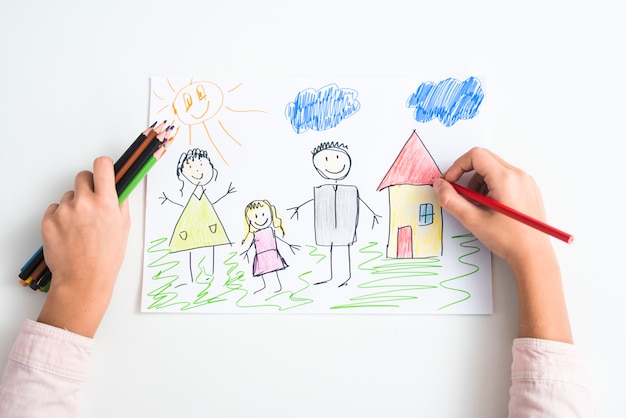Please enter the code we just sent to whatsapp 91-11-46710500 to proceed
Didn't Receive OTP?

During the early education period till the time a child becomes mature enough to make decisions for themselves and understand what is right and wrong for them, a parent should-
It is very important, many times parents might get bored or irritated by the childish talks all day but it is very important to listen to everything that their child says with full interest, they should feel their importance and should be comfortable in sharing every detail of the things that are happening in their lives.
A child’s mind is very sharp and ready to grow and learn new things. They are very curious about every other thing happening around them and wish to know more about it, a parent should pamper their curiosity and provide them with opportunities to explore new areas of life and learning
This ability develops in stages. Acknowledge and accept all of your child’s attempts to communicate a message and enjoy watching those scribbles turn into shapes, and eventually, recognizable forms and letters. Keep in mind that this process takes time and requires lots of opportunities to practice.

(e.g., identifying letters, listening for beginning sounds, or clapping syllables). Teach and model first, then ask your child to practice.
Stay aware of what’s going on in your child’s life. Accept and validate your child’s emotional experiences. When there is a problem, lend an ear and listen empathetically, without judgement. And be an ally when he comes to you for help with a problem. Although these steps are simple, we now know they form the basis of a lifetime of emotional support between parent and child.
And there are many things a parent and early educators should be very careful about while dealing with small children, like

It may not seem bad at first, but at some point, children need to learn the value of doing something for themselves and not expect a reward. When we are in a working environment, not everyone is going to get a trophy because they lost or failed. To be successful, you have to keep moving forward to improve yourself. Bribing children and rewarding them with toys, goodies, trophies, medals, stickers, and so forth can not teach children to the real value of work they do and failure. Giving compliments, appreciating of the work done, and giving appropriate constructive criticism will help them know they did something great and can improve themselves.
Be sure the praise is about the behaviour or the action, and not a comment on the child’s character. When you say “You are good” or “You are bad,” this is a reflection on your child’s character, and he may feel it can’t be changed. Instead, say “Your behaviour is good” or “Your behaviour is bad” and it becomes something the child can choose to change.
Many times your child might be taking more time to learn, or won't be getting good grades but never criticize or complain them giving someones else’s examples, help them get better, spend more time making them learn things and make them understand their mistakes but